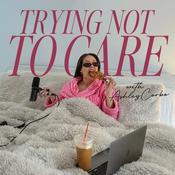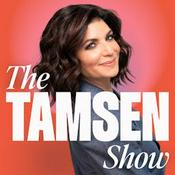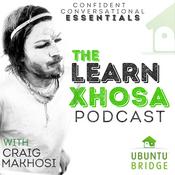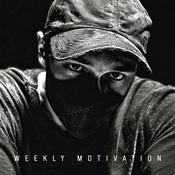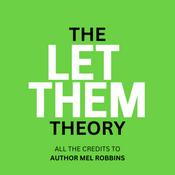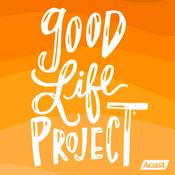Hopestream: Parenting Kids Through Addiction & Mental Health
Brenda Zane
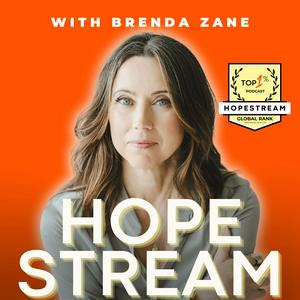
Latest episode
310 episodes
- ABOUT THE EPISODE:
When your child's phone becomes their constant companion, you might dismiss it as typical teenage behavior. But Duane Osterlind, LMFT with nearly two decades specializing in sexual addiction, shares an urgent reality: the average first exposure to online adult material is now 10 years old. This conversation illuminates why younger people are seeking help in their early twenties after years of private struggle that began in childhood.
Duane offers perspective on how behavioral addictions reverberate throughout family systems, addressing both youth struggles and partner betrayal. He shares why most relationships impacted by sexual betrayal stay intact when the person causing harm addresses the shame fueling addictive patterns.
You'll learn:
Why Duane has seen dramatic demographic shifts in his practice
How to open conversations with your kids about adult content exposure and impact
What discovery trauma is and why it can trigger PTSD symptoms
The distinction between supporting a partner versus taking responsibility for their healing
How shame operates as both genesis and sustaining force of behavioral addictions
EPISODE RESOURCES:
The Addicted Mind Podcast
Shame to Resilience Workshop (for adults)
Brenda as a guest on The Addicted Mind podcast ep. 360
This podcast is part of a nonprofit called Hopestream Community
Get our free, 4-video course, Hope Starts Here, and access to our Limited Membership here
Learn about The Stream, our private online community for moms
Find us on Instagram here
Watch the podcast on YouTube here
Download a free e-book, Worried Sick: A Compassionate Guide For Parents When Your Teen or Young Adult Child Misuses Drugs and Alcohol
Hopestream Community is a registered 501(c)3 nonprofit organization and an Amazon Associate. We may make a small commission if you purchase from our links. Be Ready When Your Child Is Ready To Accept Help for Addiction, With Brenda Zane
2026/1/22 | 25 mins.ABOUT THE EPISODE:
You've been waiting for your child to say they're ready to get help. You've imagined that conversation a thousand times, rehearsed what you'll say, held your breath every time they seem close to opening up. But what happens if that moment arrives and you're under-prepared? What if that precious window closes before you even realize it was open?
In this solo episode, I'm diving into a CRAFT procedure that often gets reduced to logistics when it's actually about something far more potent: the intersection where your child's desperation meets their willingness, and your preparation.
I'm unpacking two elements that I believe parents consistently overlook. The first is understanding that this intersection requires a third component—your readiness. The second challenges who we define as the "identified patient" in this entire scenario, because if your child is the only one getting help while the rest of your family ecosystem stays static, you're essentially working to preserve the exact conditions that contributed to their struggle in the first place.
This isn't easy work, but it's the kind that can reshape not just your relationship with your struggling child, but every relationship in your life. And you don't have to figure it out alone at three in the morning with Google and ChatGPT as your only companion.
You'll learn:
Why the magical intersection of desperation and willingness requires a third element that many parents miss
How to prepare in the background so you're not scrambling when your child finally says they're ready for help
Why your child shouldn't be the only "identified patient" and what your own version of treatment needs to look like
The difference between rescuing your child from discomfort and allowing natural consequences that can actually motivate change
Why obsessing over daily minutiae (dishes, grades, laundry) is often a distraction from the deeper internal work you need to be doing
This podcast is part of a nonprofit called Hopestream Community
Get our free, 4-video course, Hope Starts Here, and access to our Limited Membership here
Learn about The Stream, our private online community for moms
Find us on Instagram here
Watch the podcast on YouTube here
Download a free e-book, Worried Sick: A Compassionate Guide For Parents When Your Teen or Young Adult Child Misuses Drugs and Alcohol
Hopestream Community is a registered 501(c)3 nonprofit organization and an Amazon Associate. We may make a small commission if you purchase from our links.How To Get Young People Ready for Real-World Sobriety, with Alex Zemeckis and Cannon Kristofferson
2026/1/15 | 59 mins.ABOUT THE EPISODE:
When your child transitions from treatment back into everyday life, the real work begins. Alex Zemeckis and Cannon Kristofferson, co-founders of The Grounds Recovery and Mare's House, know the terrain intimately—not from textbooks or theories, but from walking that precarious path themselves. Now, years into their own recovery journeys, they've built a rock solid sober living ecosystem that helps young adults navigate the delicate nuances of early sobriety while building sustainable, meaningful lives.
In this conversation, Alex and Cannon reveal why employment isn't just helpful but essential for young people in recovery, serving as both anchor and compass in those vulnerable early months. They understand the peculiar challenge of leaving treatment's protective bubble, only to face familiar streets, old phone numbers, and muscle memories that can pull a young person back to past patterns. Their approach? Get young adults integrated into real community fabric immediately—working, contributing, encountering actual triggers while building the mental fortitude to navigate them. No therapeutic bubble, no artificial safety—just supported practice at living.
After years of working with young adults struggling with substances and mental health, they've noticed the themes that persist: the hunger for genuine connection, the need for purpose beyond sobriety itself, and the surprising power of peer mentorship from those who've earned their wisdom through lived experience and formal education. Their perspective offers something rare—credibility born from personal transformation coupled with professional dedication to helping others architect their own recovery.
When you listen, you'll learn:
Why meaningful employment serves as recovery's most underutilized tool and how work provides structure that therapy alone cannot
The specific vulnerabilities young adults face when transitioning from treatment to home environments (and practical strategies for navigating them)
How peer support from those with lived experience creates a different quality of trust and accountability than traditional counseling
The common patterns Alex and Cannon observe across hundreds of young adults—and why these patterns actually offer hope
Their unconventional approach to community integration that prioritizes real-world practice over extended therapeutic cocooning
EPISODE RESOURCES:
The Grounds Recovery website
Mare's House website (women's sober living)
This podcast is part of a nonprofit called Hopestream Community
Get our free, 4-video course, Hope Starts Here, and access to our Limited Membership here
Learn about The Stream, our private online community for moms
Find us on Instagram here
Watch the podcast on YouTube here
Download a free e-book, Worried Sick: A Compassionate Guide For Parents When Your Teen or Young Adult Child Misuses Drugs and Alcohol
Hopestream Community is a registered 501(c)3 nonprofit organization and an Amazon Associate. We may make a small commission if you purchase from our links.Gas Station Garbage, Hidden Substances, and Helping Teens Find Healthy Connection, with Sebastian Martin
2026/1/08 | 51 mins.ABOUT THE EPISODE:
If you’ve ever felt uncertain about what your teen or young adult might be using—and how easily accessible today’s substances have become—this episode is a must-listen. I sat down with Sebastian Martin, Executive Director at New Life House, a long-standing sober living program for young men, to unpack the alarming rise of so-called “gas station garbage”—substances like Kratom, kava, 7-0H, and “Feel Free” tonics that are marketed as harmless but can create dependency and serious mental health fallout.
With his deep professional experience and 15 years in recovery himself, Sebastian offers an inside look at what’s showing up in schools, treatment centers, and homes—and what parents need to know right now.
You’ll hear a candid, compassionate conversation where we explore how experimentation today can escalate much faster than it did even a decade ago, why isolation in a bedroom can be as concerning as chaotic, risky behavior, and how crucial community and connection are in early recovery—for both parents and their kids. We also discuss the life-changing potential of treatments like TMS (Transcranial Magnetic Stimulation) and what true collaboration between mental health and substance use professionals looks like when it’s done right.
What You’ll Learn:
What “gas station garbage” really is and why it’s showing up in homes, schools, and even jails (but not on standard drug screens)
Why today’s cannabis and other “legal” substances are nothing like what you may have experimented with as a teen
How to recognize when isolation can be just as dangerous as acting out
The essential role of healthy community for teens and young adults—and how parents can encourage it
A powerful mindset shift for parents: how to love your child to life, not to death.
This conversation offers clarity and calm in a world of misinformation, helping you understand what’s happening beneath your child’s behavior—and reminding you that not all hope is lost.
EPISODE RESOURCES:
New Life House website
Hopestream podcast episode 241 with Dr. Martha Koo (TMS)
DEA Fact Sheet on Kratom
Information on the “Feel Free” tonic by Eleanor Health
This podcast is part of a nonprofit called Hopestream Community
Get our free, 4-video course, Hope Starts Here, and access to our Limited Membership here
Learn about The Stream, our private online community for moms
Find us on Instagram here
Watch the podcast on YouTube here
Download a free e-book, Worried Sick: A Compassionate Guide For Parents When Your Teen or Young Adult Child Misuses Drugs and Alcohol
Hopestream Community is a registered 501(c)3 nonprofit organization and an Amazon Associate. We may make a small commission if you purchase from our links.Use Motivational Interviewing To Prevent Parenting Burnout, with Jennifer Ollis Blomqvist
2026/1/01 | 55 mins.ABOUT THE EPISODE:
When Jennifer Ollis Blomqvist discovered Motivational Interviewing (MI) in a Swedish women's prison 25 years ago, she found more than a therapeutic technique—she discovered the antidote to professional burnout and the foundation for every meaningful conversation in her life.
Now an MI expert and trainer who works with everyone from incarcerated individuals to parents navigating their children's substance use, Jennifer brings a refreshing perspective on how this evidence-based approach transforms not just our difficult conversations, but our entire energetic contract with change itself.
In this conversation, Jennifer and I explore the delicate dance of supporting autonomy while maintaining boundaries, why school refusal might actually be a sophisticated form of communication, and how motivational interviewing becomes the connective tissue between love and limits. Her renowned book, "Lighthouse Conversations: Being a Beacon for Teens," will give you a practical framework for illuminating pathways without forcing direction - a critical distinction when your child's choices feel increasingly difficult to understand.
When you listen, you'll discover:
• Why sharing responsibility for change prevents parental burnout and creates more durable outcomes than attempting to architect your child's recovery alone
• How to navigate the cognitive friction between supporting autonomy and maintaining safety boundaries—including the counterintuitive power of "doing nothing" as an active intervention
• The critical difference between rolling with resistance versus reinforcing it, and why your nervous system's response matters more than your words
• How motivational interviewing grows with you through different life stages—from negotiating with toddlers to supporting aging parents—making it the most versatile tool in your communication repertoire
• Why school refusal might be your child's way of telling you they don't fit the institutional mold, and how MI can help you excavate the real issues beneath the resistance you see at surface level
EPISODE RESOURCES:
Lighthouse Conversations: Being a Beacon for Teens
Jennifer’s website
Email: [email protected]
Telephone: +46 736 - 19 54 46
This podcast is part of a nonprofit called Hopestream Community
Get our free, 4-video course, Hope Starts Here, and access to our Limited Membership here
Learn about The Stream, our private online community for moms
Find us on Instagram here
Watch the podcast on YouTube here
Download a free e-book, Worried Sick: A Compassionate Guide For Parents When Your Teen or Young Adult Child Misuses Drugs and Alcohol
Hopestream Community is a registered 501(c)3 nonprofit organization and an Amazon Associate. We may make a small commission if you purchase from our links.
More Education podcasts
Trending Education podcasts
About Hopestream: Parenting Kids Through Addiction & Mental Health
When your teen or young adult is misusing drugs or alcohol, you need more than just tactics—you need hope, healing, and a path forward for your entire family.Hopestream delivers expert guidance and emotional support for parents navigating their child's substance use and mental health struggles. Hosted by Brenda Zane, Mayo Clinic Certified health coach and CRAFT-trained Parent Coach who nearly lost her son to addiction, this podcast goes beyond "how to get them into treatment" to address the full ecosystem of this journey.Episodes features:Leading addiction, prevention, and treatment expertsReal stories from families who've been thereEvidence-based strategies for helping your childSelf-care and coping tools for parentsDeeper conversations about finding meaning, joy, and even unexpected blessings through the hardest timesWhether you're dealing with a teen or young adult's drug use, alcohol misuse, or co-occurring mental health challenges, Hopestream offers the comprehensive support other parenting and addiction podcasts miss. This is your safe space to heal, learn, and discover you're not alone.New episodes weekly. Join us between the episodes at hopestreamcommunity.org.
Podcast websiteListen to Hopestream: Parenting Kids Through Addiction & Mental Health, The Jordan B. Peterson Podcast and many other podcasts from around the world with the radio.net app

Get the free radio.net app
- Stations and podcasts to bookmark
- Stream via Wi-Fi or Bluetooth
- Supports Carplay & Android Auto
- Many other app features
Get the free radio.net app
- Stations and podcasts to bookmark
- Stream via Wi-Fi or Bluetooth
- Supports Carplay & Android Auto
- Many other app features


Hopestream: Parenting Kids Through Addiction & Mental Health
Scan code,
download the app,
start listening.
download the app,
start listening.




